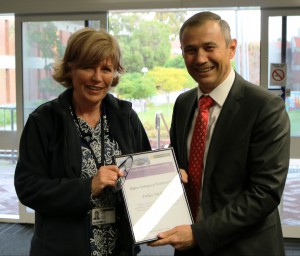New ho pe for improving the life expectancy of mesothelioma patients is emerging, with CHIRI researchers recently discovering an important link between the cancer and immune function.
pe for improving the life expectancy of mesothelioma patients is emerging, with CHIRI researchers recently discovering an important link between the cancer and immune function.
Lead researcher Dr Delia Nelson, who was recently awarded CHIRI Best Publication by the WA Deputy Premier and Minister for Health and for Mental Health, the Honorable Roger Cook MLA, said her team were able to uncover that mesothelioma patients have significant immune defects, and those with better immune function lived longer. “Mesothelioma is a highly fatal tumour that invades surrounding tissues, and the median survival of mesothelioma patients is only 4 to 19 months. Moreover, chemotherapy only extends survival by a few months,” Dr Nelson said.
“We’ve been able to show that if mesothelioma patients have higher levels of a specific type of white blood cell they live longer. Therapeutically expanding this white blood cell may provide an integrated immunological and chemotherapeutic approach to potentially treat mesothelioma.
“This is a promising outcome, as we are now one step closer to significantly improving the life expectancy for these patients, and we’re now looking for ways to restore their immune function.”
Dr Nelson said whilst mesothelioma is a relatively rare cancer, its worldwide incidence, continues to rise and is an ongoing problem for Western Australians who have been exposed to asbestos in the past.
The paper, “Human mesothelioma induces defects in dendritic cell numbers and antigen-processing function which predict survival outcomes”, can be found here: